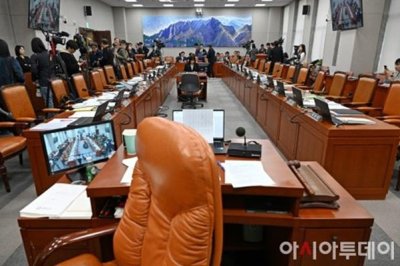Civic audit monitors give Lee government’s first audit an ‘F’

An empty seat is seen at a National Assembly committee hearing room in Seoul during a parliamentary audit session, as lawmakers, aides and reporters take their places around the chamber. Photo by Asia Today
Jan. 7 (Asia Today) — A coalition of South Korean civic groups that monitors the National Assembly’s annual audit process said Wednesday it gave the Lee Jae-myung administration’s first parliamentary audit an “F,” citing what it called a crisis in separation of powers and poor preparation.
The NGO Monitoring Group for National Audits, which said it has tracked the audit process for 27 years with participation from more than 1,000 experts and civic activists, said in a position paper that the audit “began” with controversy over Supreme Court Chief Justice Cho Hee-dae and “ended” with allegations of abuse of power involving Kim Hyeon-ji, the first deputy chief of staff at the presidential office.
The group listed reasons for the failing grade that included what it described as the worst crisis in separation of powers, inadequate preparation, extreme confrontation and an audit of Cho that it said only provoked backlash.
It also cited what it called structural problems during the audit, including committee chairs it said acted without restraint, a shortened audit period and the presence of seven senior ruling party lawmakers serving as ministers leading agencies subject to scrutiny.
The group said some committee chairs restricted lawmakers’ opportunities to question witnesses and, rather than acting as lawmakers, behaved like investigators, turning the audit into a confrontation-style interrogation.
– Reported by Asia Today; translated by UPI
© Asia Today. Unauthorized reproduction or redistribution prohibited.



